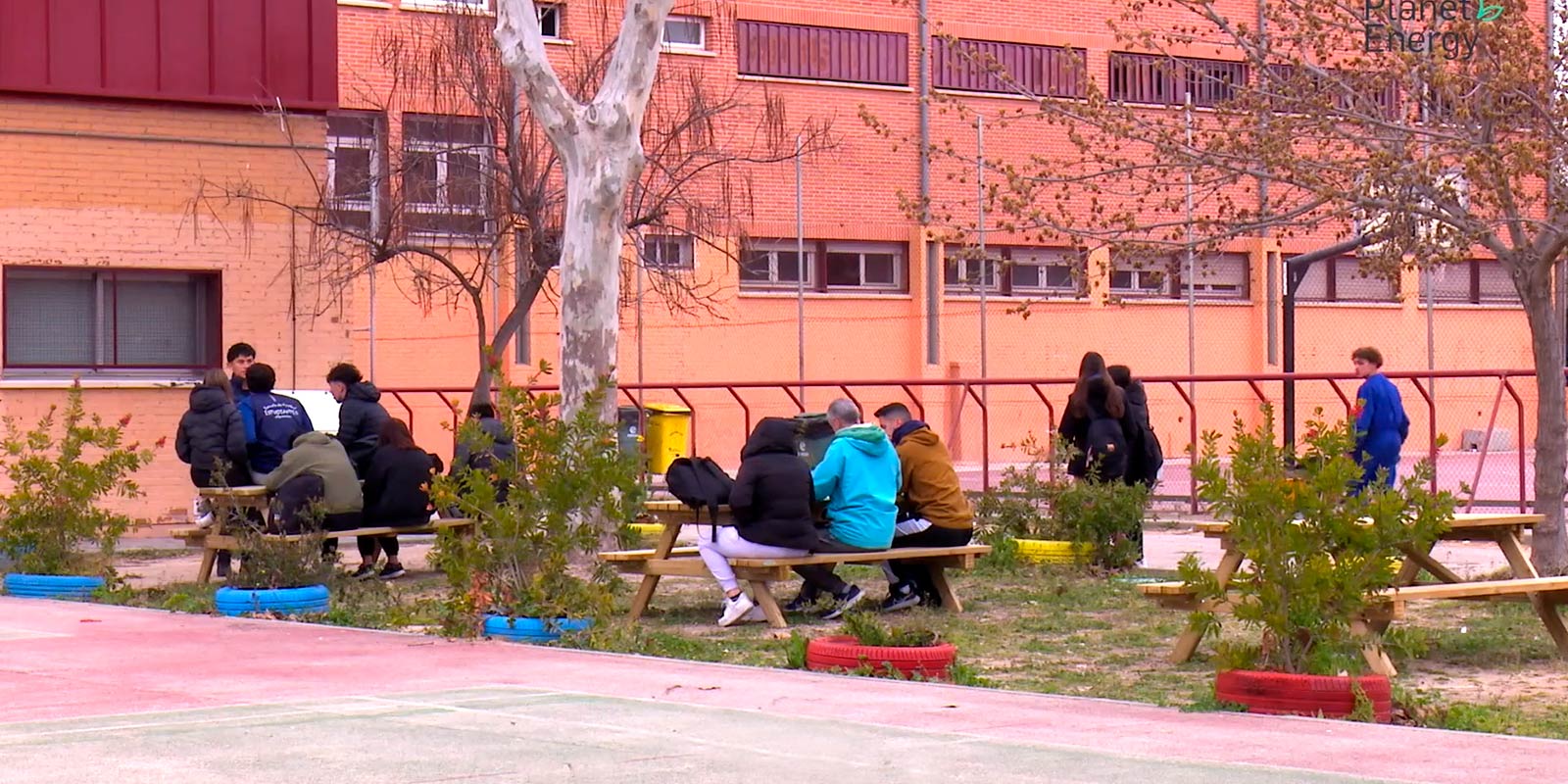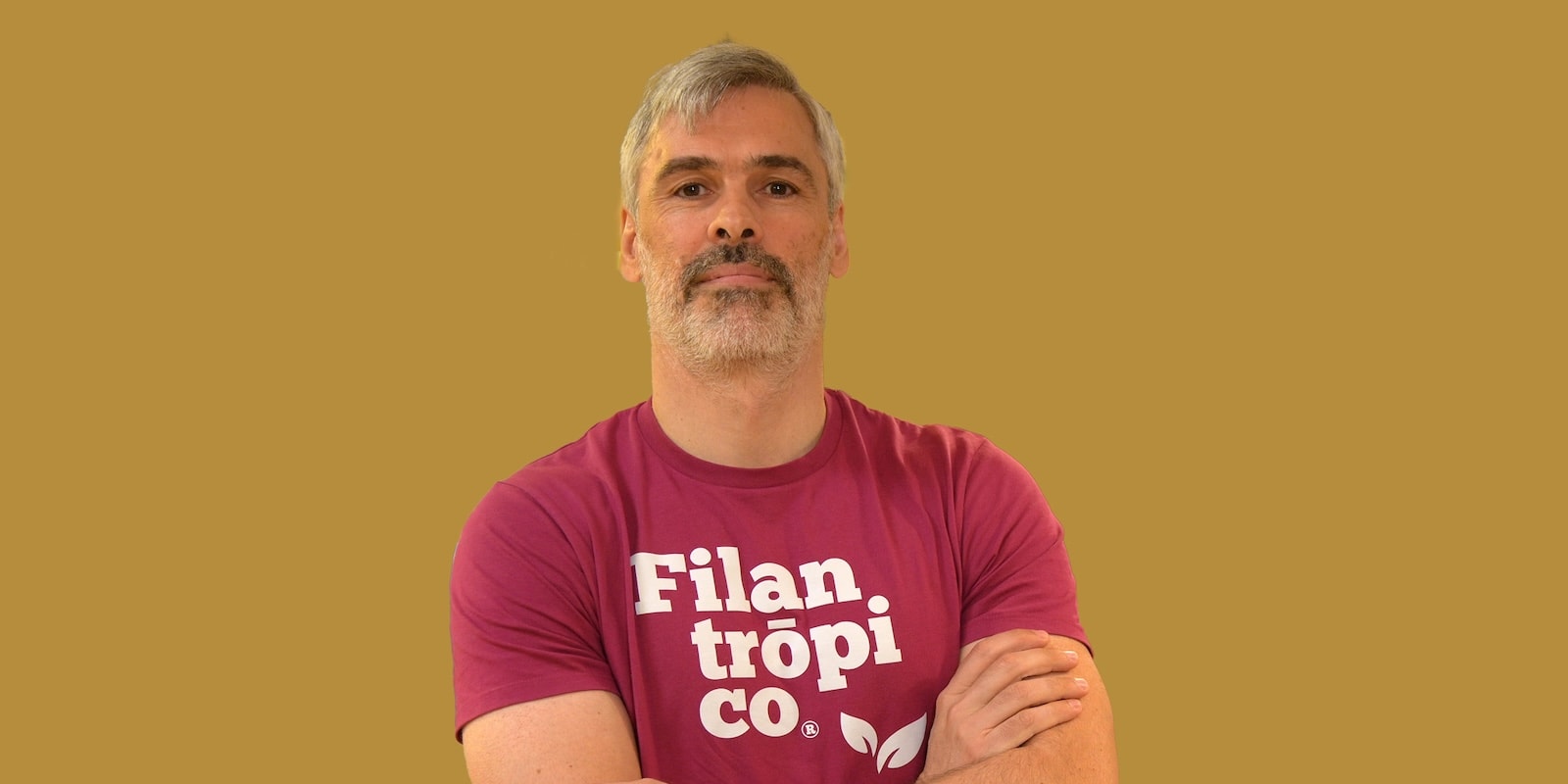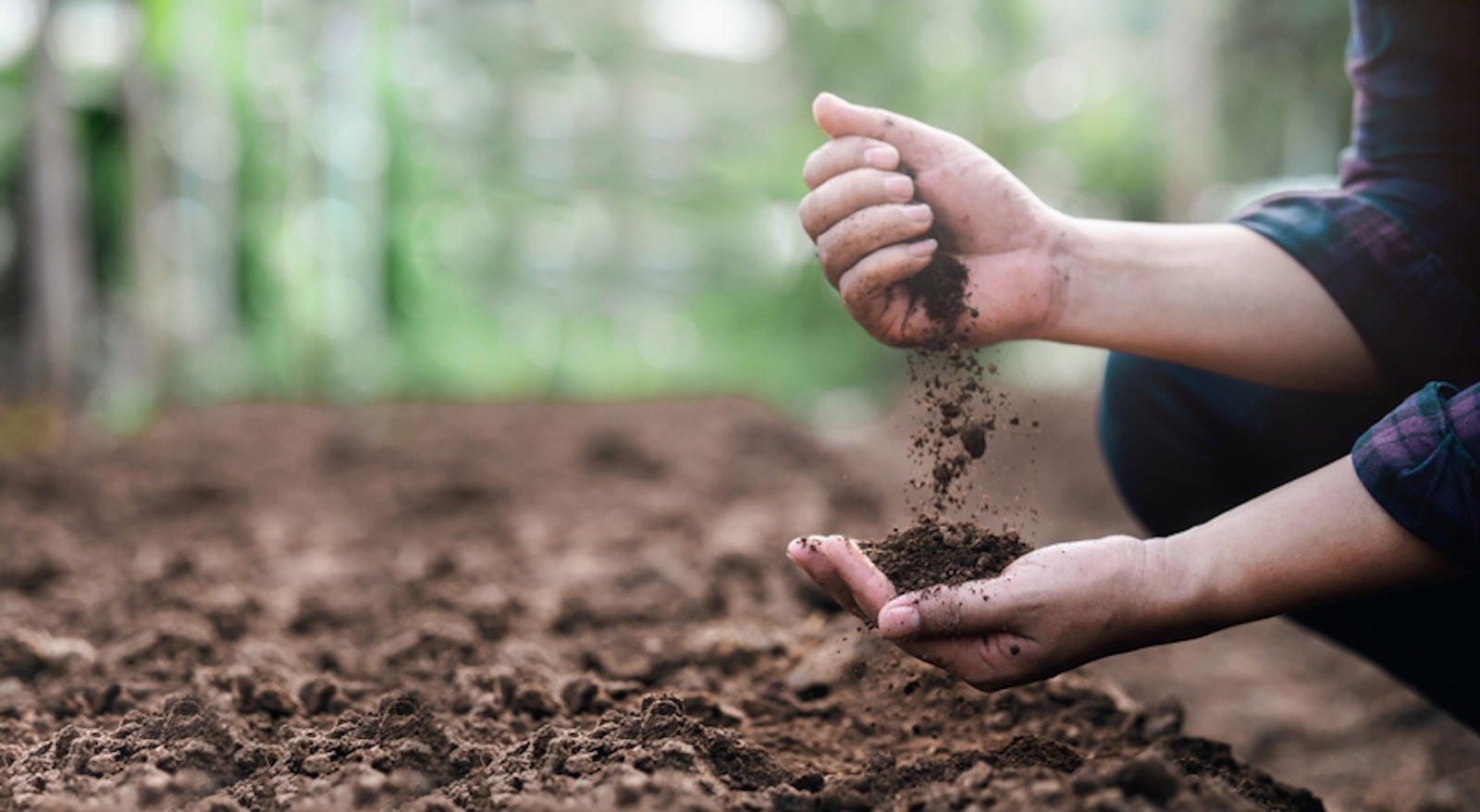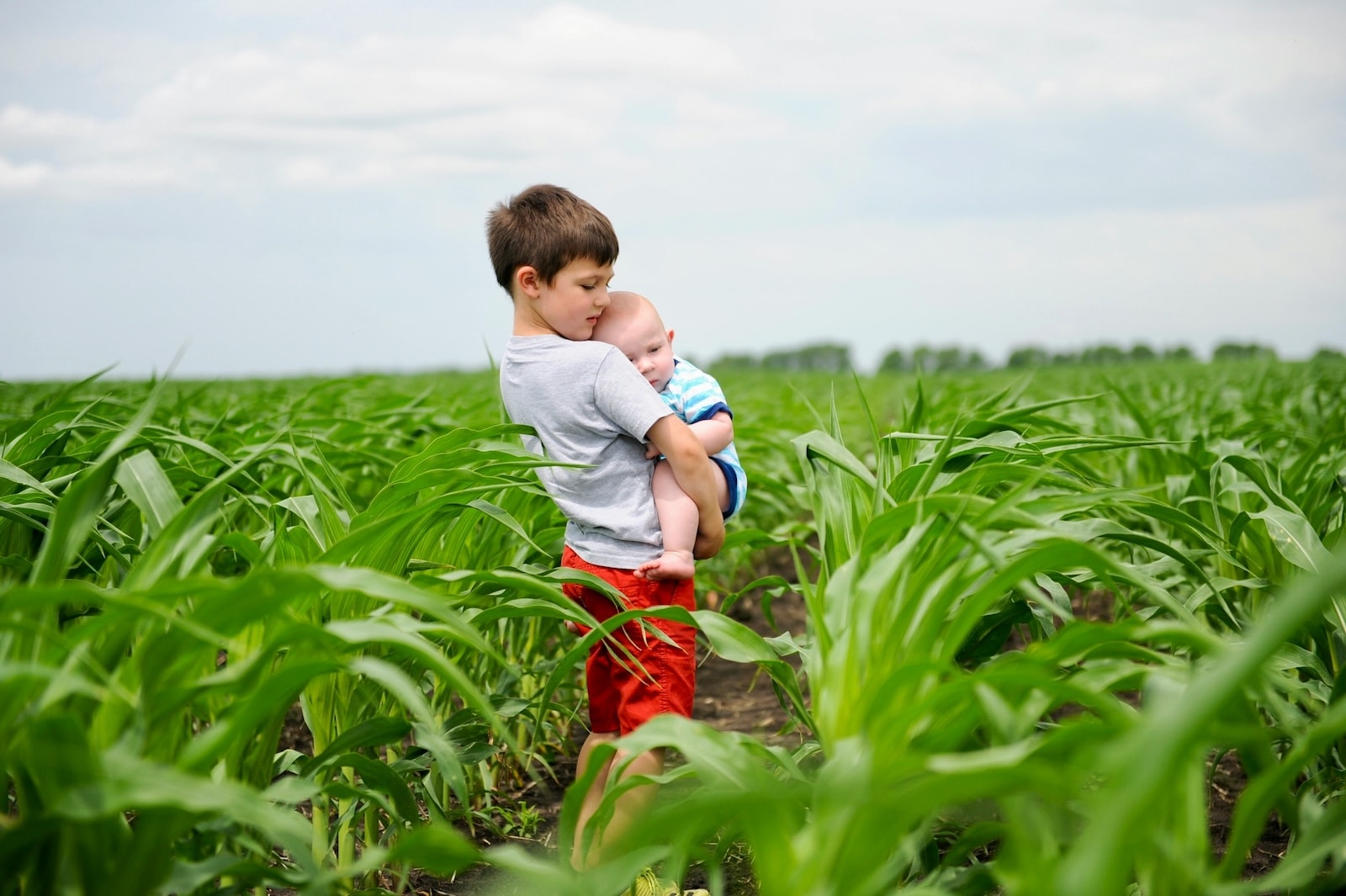Thursday, April 4, 2024
For the past 20 years, the leaders of schools in Spain have been promoting education that addresses environmental impacts and putting this into practice by constructing energy-efficient buildings and incorporating green spaces, among other measures
Author: José Manuel Blanco
In Spain, schools have a long tradition of sustainability, even before the climate emergency or the Sustainable Development Goals (SDGs) were on everyone's lips. Since 2001, the Barcelona City Council's More Sustainable Schools program has been raising awareness among the students of 604 schools. A total of 381 schools are taking part in this initiative in the 2023–2024 academic year, and it involves a variety of actions ranging from improving resource consumption in schools to using creativity to raise awareness of climate change through art.
José María Martín is a teacher who recently led 9th graders at the Institut Escola Londres to carry out an audit of the building’s energy use. In addition, students contemplated how noise pollution and temperatures can be managed at a school located in central Barcelona that is very noisy when the windows are opened. Martín told Planet Energy how students were "enthusiastic and excited" to learn and were very surprised when they used a decibel meter to measure the ambient noise level.
Other projects go beyond the educational community and involve the neighborhood. At the Institut Joan Brossa, students from the Sales, Office and Customer Service training and employment program have developed Retroba, an initiative where both families and local residents can take their second-hand clothing to a neighborhood association. In exchange, they receive guinars, a currency that takes its name from the neighborhood of El Guinardó where it is located, that they can exchange for other items of clothing in the same place.
The initiative promotes the circular economy and encourages people to recycle clothing, all while strengthening relationships between neighborhood residents. Joana Bravo, training program tutor, explained that the association welcomed them “as their own.” For example, some retired neighbors regularly approach and chat with the students about how they used and preserved their clothes.
Another initiative related to the environment and sustainability is the Eco-Environmental Schools program in the Balearic Islands, currently in its 20th edition in the 2023-2024 school year, which, in addition to traditional environmental and climate change topics, also tackles noise pollution. Meanwhile, the Palencia Provincial Council has Schools for Sustainability, which promotes environmental audits in schools so that students can monitor and solve environmental problems in the surrounding area and learn how to make decisions.
Awards, architecture, and nature at school
Many of these initiatives to make the world more habitable have received awards. In 2023, the Spanish Ministry of Education presented ten establishments with the Recognition for Sustainable Schools for their work “to promote a culture of sustainability,” according to the organization.
One of these establishments is the IES Prado de Santo Domingo in Alcorcón (Madrid). The principal, Eugenio García, gave special mention to the solar panels that provide the school with electricity and the electric charging station they have installed. A reward for years of work that includes raising awareness about environmental values and climate change, as well as cultivating an organic garden or installing a compost bin. The establishment already offers an energy efficiency training program, and García wants to provide more similar study programs in the future.
Some students from El Prado de Santo Domingo are ecological delegates. Mateo is an 8th grader who believes this role is "an honor” as it gives him the chance to “do his bit” to make his school more sustainable and have a more prosperous future. They usually meet once a month to suggest different ideas, such as adding more trash cans in the school canteen to encourage recycling.
At the same time, awareness is no longer confined to the classroom and is now part of the structure of schools. This is the case of the Colegio Reggio in Madrid, designed by architect Andrés Jaque. As you approach the imposing facade, the building appears half-finished with exposed concrete and spray cork that, just like the uncovered heating pipes inside, give students the opportunity to discover these materials.
On one of the floors, the classrooms surround a central garden. Therefore, students can observe a changing ecosystem throughout the school year. In addition, flowerpots are a fixed feature in classrooms alongside the tables, blackboards, and recycling trash cans, just like in the hallways.
The school’s principal, Eva Martín, has told us that they have 17 planters inside and outside the facility designed to attract insects, birds, and bats, creating ecosystems that accompany daily life at the school and are a learning opportunity for students. Butterflies, bees, wasps, and even partridges and rabbits from the area in the north of the city have already “paid the school a visit.” The objective is to bring “a little bit” of forest or countryside to the facilities. Now the aim is to catalog the insects and plants and reconstruct the ecosystem that existed before the building was erected in an area near the center. Martín has calculated that there are more than 60 plant and tree species. The principal believes that “spaces change your attitude towards life”.
Education on sustainability and ecology can also be found in rural areas that are so close to nature. The Colegio La Pradera is located in Valsaín, a small town in Segovia with a few hundred inhabitants belonging to La Granja de San Ildefonso. Its trophy cabinet is full of regional and national awards for its environmental programs.
Inside the school, students and teachers have designed a school garden or raised awareness about reusable lunch boxes during recess, and outside, they have visited the nearby Sierra de Guadarrama National Park to learn how to preserve it. The SDGs have also been a source of inspiration for raising awareness.
These teachers have some tips for schools that want to work on sustainability. José María Martín encourages them to start “little by little”, with a “united” group of teachers that students, who “will be the most enthusiastic and motivated”, will join, as well as families. Joana Bravo agrees that “many teachers and the entire community must be involved.”
Because, as Eugenio García has summarized, “students have to take on a fundamental role.” They are the ones who will receive the benefits and, in the future, they will become the citizens who have to promote sustainability on our planet.
¿Te ha parecido interesante?





